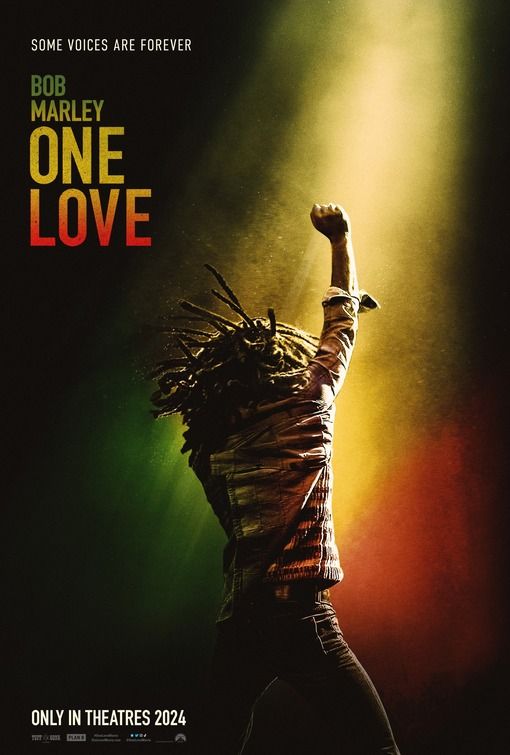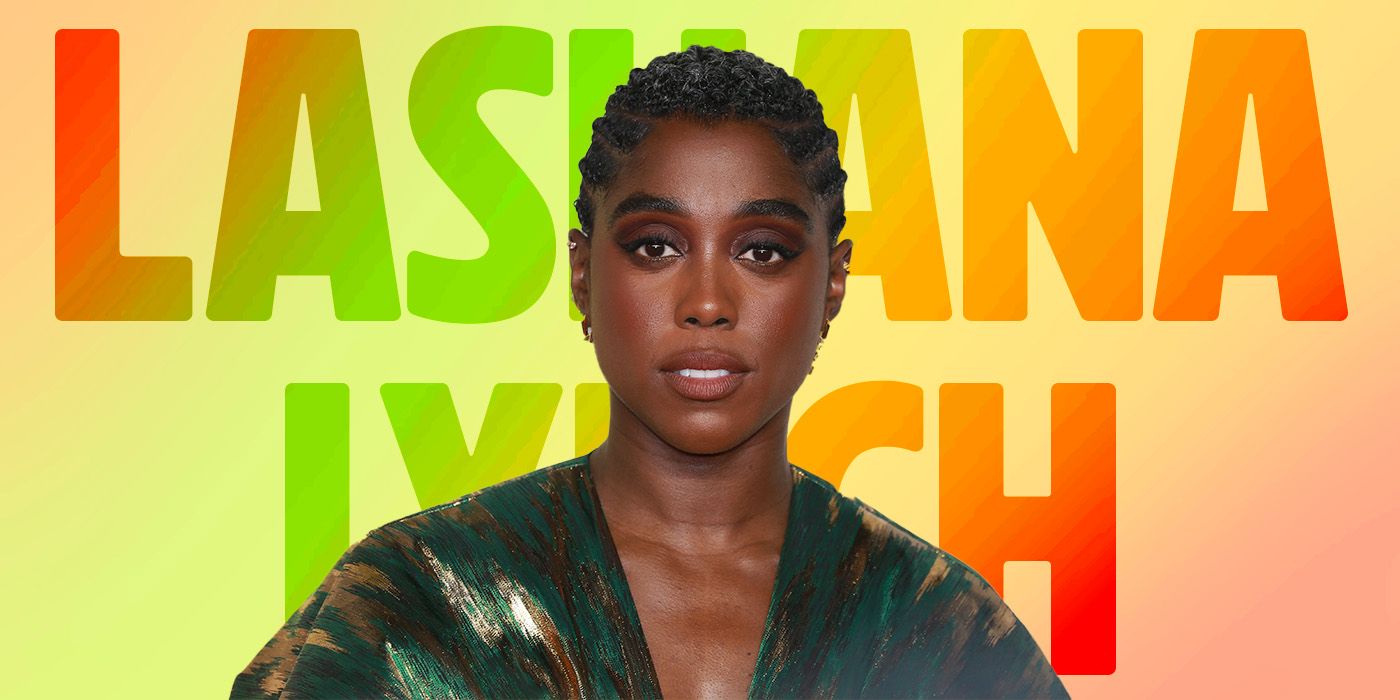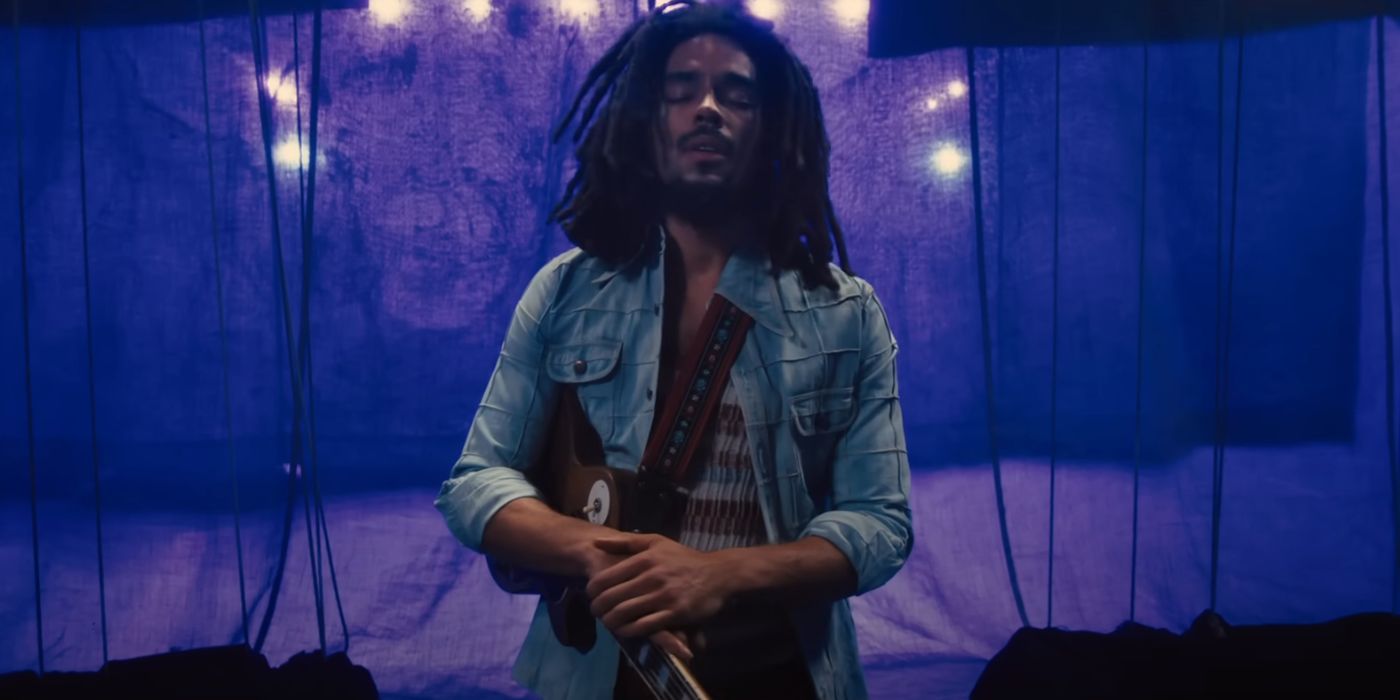The Big Picture
- Marley: One Love explores the controversial aspects of the reggae legend’s life and career, including political implications and personal flaws.
- The film highlights Marley’s spiritual journey as a Rastafarian, detailing the impact of his beliefs on his music and career.
- Despite oversights in addressing key moments, Marley: One Love provides a dramatic portrayal of the reggae icon’s chaotic career and personal struggles.
The musician biopic subgenre has grown increasingly popular in recent years thanks to surprising blockbuster hits like Bohemian Rhapsody and Straight Outta Compton, which proved to be highly successful awards season contenders and commercial hits. It’s easy to see why these films have become so popular; any iconic artist with a notable catalog of classics is bound to have a built-in audience that would be interested in seeing their story told. These biopics can be of a wide range of quality, as they’ll typically not engage with their subjects as real people and more just a fixture of popular culture. Bob Marley‘s life is certainly one ripe for adaptation, as the reggae legend’s career reshaped the popularity of Jamaican music on the global stage and had major political ramifications. While it ignores some of the more controversial aspects of the singer’s life, Bob Marley: One Love presents an accurate portrayal of the reggae legend’s chaotic career.

Bob Marley: One Love
A look at the life of legendary reggae musician Bob Marley.
- Release Date
- February 14, 2024
What Is ‘Bob Marley: One Love’ About?
Directed by Reinaldo Marcus Green, Bob Marley: One Love stars Kingsley Ben-Adir as Marley during the most volatile period of his career in the mid-1970s. Although there are flashbacks to his early life, Bob Marley: One Love utilizes a nonlinear narrative structure to show the backlash that Marely’s political outspokenness received. While he was best known for his calm, easy-listening music that emphasized peacefulness and good spirits, Marley’s work was quite controversial given the state of Jamaican politics during his rise to prominence. As the opening title cards of the film reveal, Marley’s home country was caught in the midst of a civil conflict between supporters of the prime minister Michael Manley and his democratic socialist People’s National Party and followers of the leader of the Jamaica Labour Party, Edward Seaga.
While the film eventually develops more of the singer’s backstory, the assassination attempt on Marley’s life serves as a framing device for the entire film. Marley and his band, The Wailers, were set to perform at the “Smile Jamaica Concert” in the National Heroes Park in Kingston, Jamaica, in an effort to spread a message of nonviolence. Two days before the performance, Marley and his wife, Rita (Lashana Lynch), were attacked in their home by members of a rival political group that saw his influence as corrupting. Marley himself was shot in the head and arm, and Rita was left with a critical head injury after being shot in the head. While Bob Marley: One Love avoided an R-rating, this is a surprising moment of violence for a PG-13 film.
Although the film addressed Marley’s self-imposed exile in the aftermath of his Jamaican experience, Bob Marley: One Love nails the political ramifications of the reggae legend’s “Smile Jamaica” performance. In addition to putting a national spotlight on the chaotic situation, Marley’s performance helped spread his message of pan-Africanism and the necessity of social infrastructure in developing nations. Beyond the performance itself, Marley addressed pan-Africanist themes in iconic tracks like “Zimbabwe”, “Exodus”, “Survival”, “Blackman Redemption”, and “Redemption Song,” the last of which drew direct inspiration from the civil rights icon Marcus Garvey. While documentaries like the 2013 film Marley may offer a more fact-based approach to the singer’s life, Bob Marely: One Love gives the viewer the experience of seeing Marley’s story play out dramatically.
‘Bob Marley: One Love’ Showcases Its Spiritual Influences
In addition to being a political figure of great importance, Marley’s spiritualism served as one of the defining aspects of his artistry. The film details how his upbringing in Jamaica introduced him to the Rastafrian sect of the Abrahamic religion, which he converted to in the early 1960s. While Ratafariansim shares some hallmarks with other interpretations of the Bible, it involves elements of mysticism and directly involves elements of black history. Many followers of the religion view Marley’s work as intrinsic to their spirituality, which Bob Marley: One Love delves into once the singer becomes one of the world’s most popular artists. Marley’s insistence on keeping the spiritual inspiration of his music pure is a recurring theme throughout the film.

‘Bob Marley: One Love’ Solidifies Lashana Lynch as One of the Best Modern Actors
Across a steady stream of movies in wildly varying genres, Lynch has proven to be a dynamic onscreen presence.
While it underlies the positive impact that his message had on his followers, Bob Marley: One Love addressed the challenges Marley faced in releasing obliquely political and spiritual art. Although some white music producers objected to the overtly religious aspects of Marley’s discography out of fear that it would deter average listeners, Marley found a supporter in Island Records’ producer and founder Chris Blackwell, played by James Norton. The Happy Valley star depicts Blackwell as an ally to Marley who was willing to invest in his more idiosyncratic ideas about making religion central to their marketing campaign.
‘Bob Marley: One Love’ Addresses Its Subject’s Faults
A recurring issue within biopics of famous musicians is their unwillingness to engage with their subject’s less endearing qualities. However, Bob Marley: One Love shows the rifts in Marley’s marriage with Rita, as she struggled to take care of their family when Marley’s lifestyle grew more dangerous throughout his worldwide tours. Marley had multiple affairs during his tours, and had children with several other women outside his relationship with Rita. In one of the film’s more memorable sequences, Rita confronts Marley after a club appearance and criticizes him for his disrespectful treatment of her.
Bob Marley: One Love also details the controversial nature of its subject’s death, as the music icon died in May 1981 after a malignant melanoma was discovered under his right toe. While he was pressured to amputate the toe in order to prevent the disease from spreading, Marley resisted any advice from medical professionals, citing his religious beliefs. He continued to perform with the disease throughout the late 1970s until he collapsed in Central Park during a North American tour. Bob Marley: One Love may be a straightforward biopic, but it certainly has an accurate recount of its subject’s tragic end.
Bob Marley: One Love is available to watch on Paramount+ in the U.S.


